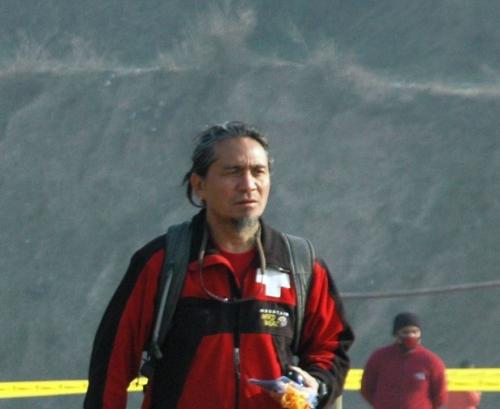
A Value-based Education In The Great Outdoors: Interview with Chandra Ale (Director, Initiative Outdoor, Outdoor Leadership School)
1. How did the idea of Initiative Outdoor (IO) take shape and become a reality?
"I have worked in the outdoor industry and have been travelling since 1995. I saw a lot happening around the world as I worked. I also began to teach kayaking and rafting then which was still informal – I got certified and my teaching practice then became formal in 2001. Many companies in the US have inspired me to teach outdoor education. I tried to bring some of the schools and ideas here which did not materialize. In 2001, I began to work for two organizations – RESCUE INTERNATIONAL 3 and the NATIONAL OUTDOOR LEADERSHIP SCHOOL where I became a certified instructor. The first organization focuses on rescue of all kinds such as mountain rescue, river rescue and flood rescue and the second on outdoor education.
What I teach and support is still not officially recognized in Nepal. Education here is still very academic. In essence, our country is heaven. We did not know or understand this when we were young and considered the mountains as tourist spots and attractions. Outdoor sport was already introduced here by Tenzing Norgay and Sir Edmund Hillary. I continue to focus on outdoor education for our younger generations. Many people abroad still do not know about Nepal. The younger generations must not be blind like we were."
2. What are the key forms of outdoor training and skills development that IO focuses on and why?
"Initiative Outdoor started in 2003. We began with incorporating outdoor education principles and practices at the school and college levels. We also educated staff from trekking and travel agencies especially in terms of formal outdoor training and certification. For example, the Gosainkunda Expedition was very successful. We also began to work with adult education and introduced our core concepts. Working for Initiative Outdoor is also a part of education and a great learning experience for me as well.
To minimize risk in the outdoors, the number one factor is focus. Focus also becomes meditation when I walk, work and teach. There is a significant difference between the two statements: ‘I have to’ and ‘I want to’. People must also work for themselves. There is always a better way and that is why the IO slogan is “Learning by Experience.” When I teach, I encourage people to make mistakes. If you are afraid to make mistakes, you will never learn.
In terms of the training aspect, safety is the number one key for and at IO. To lead a trip anywhere, there must be assurance and security. The skills learnt can be used over your lifetime and applied everywhere and in any situation. A certain level of physicality is also crucial because without fitness, you cannot take part in adventure travel and the outdoors. Regular exercise and particularly cardio exercises are important. Nutrition is another critical factor. And without a doubt, you must be stress less. The key is to relax and think positive for success in the task at hand. For climbing trips and training, there are standard grades and physical strength is imperative along with nutrition, training and practice."
3. As an outdoor adventure initiative, what are some of the essential life lessons and skills that IO can hone and scale up in Nepal?
"Leadership values are critical and respect, both for yourself and for others. Then you can move into group dynamics. Working by myself is easy. Working with others is not because, for example, you need good communications skills. Equal respect is fundamental, as a human, for success in life and work."
4. How does the Leave No Trace philosophy blend with IO's work ideals and programs? Why?
"In 1995, my brother, Megh Ale, started the Nepal River Conservation Trust here. He is widely travelled and saw the environmental issues in the West. He tried to implement practicable solutions to our environmental problems here. For example, during his visits to Germany and Austria, he began to see the importance of cleanliness. Why are our rivers so dirty? We put together training programs for rafting guides and for teaching junior staff. Don’t throw plastics became a key pivot and action. The river is a home. We must stop littering our natural ecology. Since then I have become acutely aware of environmental crises here and we work towards remedying the damage.
When I was young, I remember throwing an orange peel into a river beach. I was told to pick it up and I did not understand the lesson behind that then. We have continued the NRCT work with international guides and rafting instructors. I saw the lessons and I applied them. After joining the Outdoor School, I had to participate in working with the 7 Leave No Trace Principles and to teach these to participants of varying ages. I brought this learning and philosophy back to Nepal. We went from school to school and college to college and introduced and are introducing these principles and concepts. When I work in other countries, such as India and Sri Lanka, these principles go with me. How did global warming happen? All environmental issues are related to the Leave No Trace Principles and to a lack of education. You have to see before you teach and think carefully about the effect and impact.
Response has to come from all over the world and each country must participate. Building a library is not the first step. Education is. We have to conserve our energy in a positive way. The burgeoning population has contributed deleteriously to environmental pollution. This must be controlled. Cultural issues in countries such as India and Nepal play a role too. The answer comes from education not a library."
________________________










Add new comment